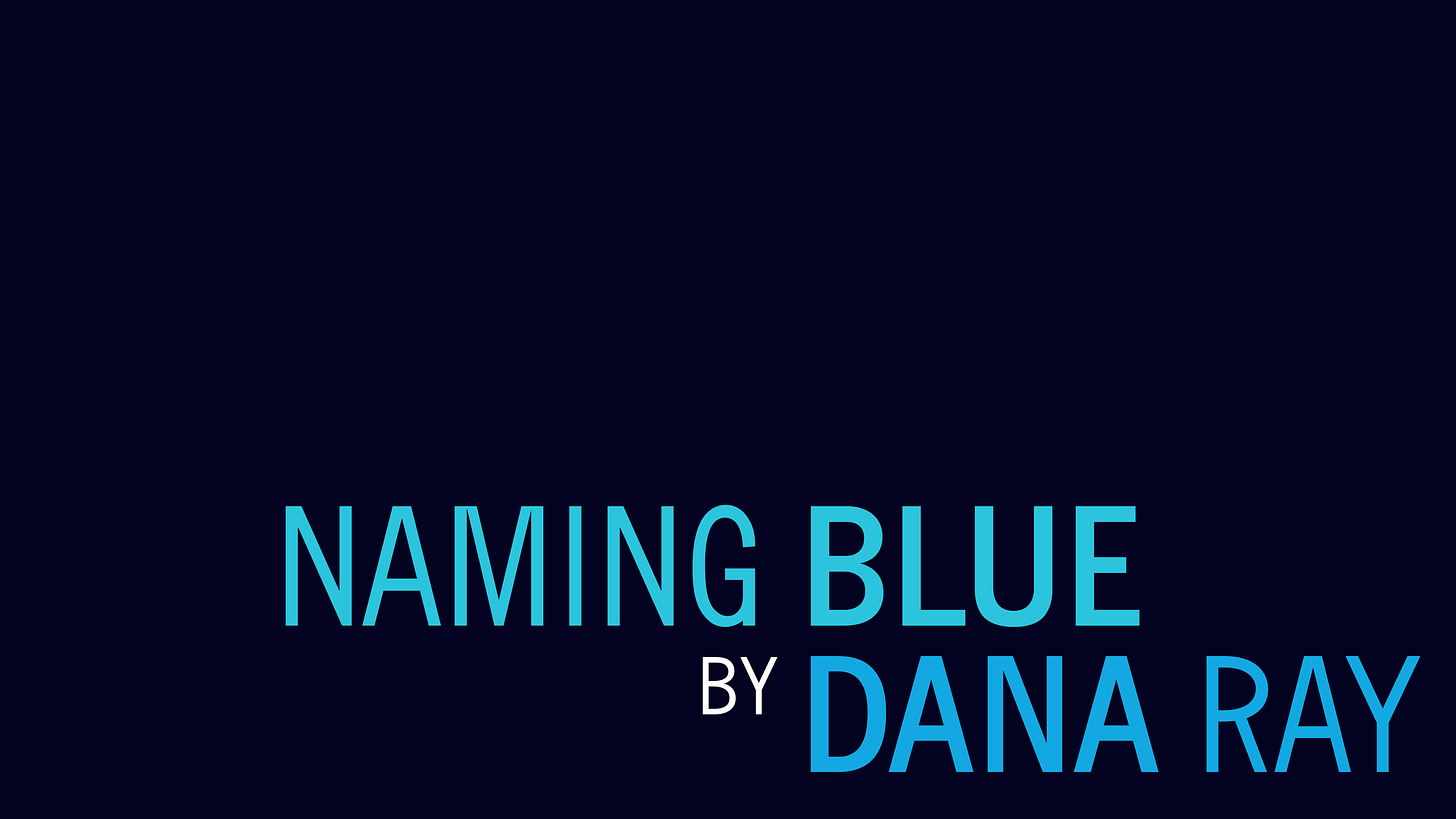a weekly(ish) essayistic reflection on Naming, its power and pitfalls.
Here to explore the hubris-delusion-illumination-reality within how we humans use language and look at the world.
Doing so by way of looking outward at the world and inward at my experiences. A good dose of attention to art making, art experiencing, art criticism, and the creative life.
Read the whole thesis of the project here.
DANA RAY: NAMER-OF-UNNAMED-THINGS, IDEA-WRANGLER, WRITER
With over a decade in writing and communication—including time in marketing, academia, and community leadership—
I use language to reveal the “sharp, bold purpose”* available to each of us.
*wording by Priya Parker in “The Art of Gathering”, a must read
Other Fun Facts:
Founder of Name Your Work Consulting where I help unboxable leaders talk about their category-defying work in clear and interesting ways.
I love “Why Fish Don’t Exist” by Lulu Miller in part because it undermines my love of naming and splashes some cold-hard truths about human frailty and ham into the mix. Her stunning essay on this idea.
Speaking of books, I have a little Bookshop where I like sharing my faves.
I call DC home but don’t tell the people who live in the District because I actually live in Maryland and it upsets them.
Have a Master’s in English Literature and Creative Writing from Bucknell University.
What I know about language and what that means for these letters
Language is both made and received. We can make new words. We can change old words. We can say old things and new things. We can understand how words change over time. We can question or embrace what is given to us. So these letters will do a hefty amount of both.
Language forms in dialogue. We learn speech through exchanges as young babies. We generate the very capacity through conversation. We don’t come up with words on our own. So let’s talk here.
Language is uniquely wired in our brains. Even people with a shared language differ in the associations and narratives that lurk behind each word. Your tree is not my tree. It makes communication tricky but also a generative practice. So these letters will exist from curiosity about how we speak and perceive (nerd term is postmodern theory of subjectivity).
Language is responsible for how we perceive and how we act. It’s serious work. So while I get sassy, I try not to be flippant.
What I believe about criticism
Because criticism is a kind of naming and I really enjoy reading it and writing it so you’ll see it here!
Good criticism takes the work seriously. It doesn’t treat it as a joke.
Good criticism pays attention. It gives itself to the world of the imagination.
Good criticism focuses on technique. I don't know what someone wanted to achieve when they made something. But I can see where it seems to trip itself up.
Good criticism hopes for the best. I really want things to be good. Both for me AND for the person who made the thing I'm criticizing. So I want to generously anticipate that things will be good!
Good criticism embraces potential. It illuminates the road to What Could Be.
Good criticism embraces humor. Taking something seriously doesn’t mean we can’t laugh when we find something ridiculous.
PS. I commit typos with abandon.
I really don’t care. Don’t bother pointing them out.





